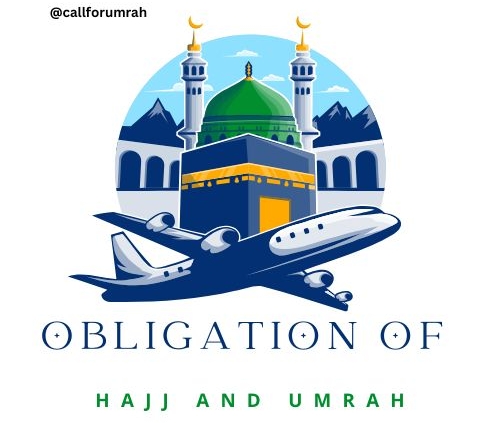What is the Obligation of Hajj in the Quran?
Hajj, one of the five pillars of Islam, is a sacred journey that symbolizes submission, unity, and spiritual renewal. The Quran emphasizes the obligation of Hajj and Umrah as a command from Allah for those who are physically and financially capable. This divine duty not only strengthens faith but also connects Muslims worldwide through an act of worship that has remained unchanged since the time of Prophet Ibrahim (peace be upon him).
Hajj in the Quran: A Divine Command
The Quran explicitly highlights the obligation of Hajj in Surah Al-Imran (3:97):
“And Hajj to the House (Kaaba) is a duty that mankind owes to Allah, those who can afford the expenses.”
This verse establishes Hajj as a binding duty upon every Muslim who meets the conditions of ability and means. The pilgrimage is not just a ritual but a fulfillment of Allah’s command. It embodies gratitude, humility, and recognition of the Creator’s authority.
Similarly, the Quran also acknowledges Umrah as a significant act of worship. Surah Al-Baqarah (2:196) states:
“And complete the Hajj and the Umrah for Allah.”
This verse reinforces that both Hajj and Umrah are acts of devotion meant solely for Allah’s pleasure, with Hajj being obligatory once in a lifetime, while Umrah is highly recommended and meritorious.
The Obligation of Hajj and Umrah
The obligation of Hajj and Umrah serves as a reminder of faith and obedience. For Hajj, conditions include being Muslim, of sound mind, financially capable, and physically able to perform the rites. It is a collective expression of submission to Allah, where millions gather in Makkah, dressed in simple garments, leaving behind worldly distinctions.
Umrah, though not compulsory like Hajj, carries immense rewards. Known as the “lesser pilgrimage,” it can be performed at any time of the year. The call for Umrah is a call to spiritual purification, forgiveness, and closeness to Allah. Many Muslims combine Hajj and Umrah together, while others perform Umrah separately, seizing the opportunity for blessings and renewal.
Spiritual Significance
Beyond obligation, Hajj and Umrah symbolize a believer’s journey toward Allah. Standing on the plains of Arafat, circling the Kaaba, and walking between Safa and Marwa are rituals deeply rooted in the legacy of Prophet Ibrahim and his family. They serve as reminders of sacrifice, patience, and reliance upon Allah.
The call for Umrah provides Muslims with an ongoing opportunity to respond to Allah’s invitation, to seek forgiveness, and to cleanse their hearts. It reflects the mercy of Allah, who opens doors for believers to return to Him repeatedly.
Conclusion
The Quran makes it clear that the obligation of Hajj and Umrah is not merely a ritual, but a divine command with profound spiritual significance. Hajj, once in a lifetime, is compulsory for those able, while Umrah offers an ongoing path to spiritual purification. Answering this call is both a duty and a blessing, uniting Muslims in devotion and submission to Allah.











Leave a Reply
Want to join the discussion?Feel free to contribute!